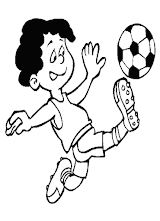For some people the third of Rebbi’s teachings at Avot 2:1 has a slightly menacing flavour:
הִסְתַּכֵּל
בִּשְׁלֹשָׁה דְבָרִים, וְאֵין אַתָּה בָא לִידֵי עֲבֵרָה, דַּע מַה לְּמַֽעְלָה
מִמָּךְ, עַֽיִן רוֹאָה וְאֹֽזֶן שׁוֹמַֽעַת, וְכָל מַעֲשֶֽׂיךָ בְּסֵֽפֶר
נִכְתָּבִים
Contemplate three things and you
will not come to the hands of transgression. Know what is above you: a seeing
eye, a listening ear, and all your deeds are inscribed in a book.
The fictional nightmare of George Orwell’s 1984, a
world of constant surveillance of the actions of individuals, became a reality
years ago. We have become quite used to security cameras and to developments in
computing and AI that create the uncomfortable impression that there are
machines out there that know more about ourselves than we do. Many commentators
on Avot, even in earlier generations, were quick to remind us that God sees and
hears everything we do—and that nothing is omitted from His database of human
actions, words and thoughts.
Rabbi Yaakov Hillel (Eternal Ethics from Sinai) brings a refreshing
perspective to the part of the mishnah that mentions how our deeds are written
in a book. For most of us the message of Rebbi is a cautionary one: don’t do it
or, if you do it, don’t imagine that you can get away with it without being
noticed. But Rabbi Hillel finds a positive message in it too.
Many of us are occasionally motivated to raise our game, as
it were, and cultivate a more spiritual attitude towards the way we live in
this, our physical and materialistic world. But from where can we derive our spiritual
inspiration?
Our Sages old and new have left us with a rich literary heritage
in terms of Jewish subject matter: halachah, mussar, midrash, kabbalah,
chassidut, philosophy and much more besides. If we find the right books, we
can grow from them, enriching our understanding, our commitment and ultimately
our closeness to God. So, explains, Rabbi Hillel, when our mishnah states that “all
your deeds are inscribed in a book”, we can take this to mean that all our
deeds—the deeds which we consciously seek to emulate or implement in our own lives—are
already written down in the kodesh books we read. All we have to do is
follow the instruction we find in the printed word.
Comments and discussion of this post can be found on
Facebook here.


